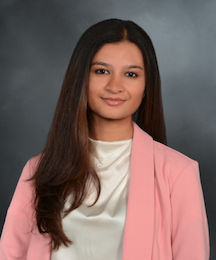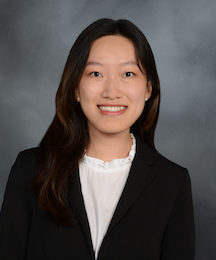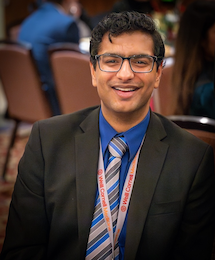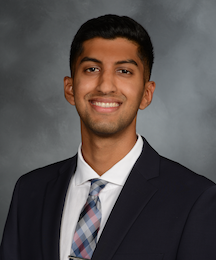About
The MCC MARC Summer Research Fellowship is awarded to four WCM medical students to complete a cancer research project during the summer between their first and second years. This is an 8-week, full-time program that provides awardees with an introduction to research methodologies, study design, and the different modalities that clinicians can interface with cancer research. Acceptance to this program includes attendance at once-weekly seminars, a poster or oral presentation of the student's project at the WCMC Medical Student Research Day, and a written report (see program requirements below).
Funding
The MCC MARC awards 4 WCM medical students a stipend of $3,000 each. This award may be combined with Institutional Summer Research Award funds for a total combined funding of $5,000.
Eligibility and Requirements
- Applicants must be first-year medical students at Weill Cornell Medical College
- The research must be conducted for 8 continuous weeks between June 2026 - August 2026 (the summer between the first and second years of medical school)
- Applicants must already have a committed MCC faculty mentor at the time of application submission
- Applicants must conduct research that is cancer-related
- Recipients must work full-time in the lab for these 8 weeks. Recipients may not have any other interfering commitments
- Recipients must attend a weekly professional development meeting (more details to come)
- Recipients are required to present their research as a poster or oral presentation at the 2026 WCMC Medical Student Research Day
- Recipients are required to submit a written report describing their research experience
- Recipients are required to fill out annual progress reports and alumni surveys
Protocol Approvals:
The applicant's MCC Faculty Mentor is responsible for identifying and obtaining all required reviews and approvals prior to initiation of the applicant's participation in research. This includes oversight committee review (e.g., IRB, IACUC, IBC, RSC, ESCRO), permits (e.g., radioactive materials, select agents, controlled substances, import/export), safety or hazard training and/or registration.
Application Materials
To apply, students must submit a single file pdf with the naming structure: LastName_2026MARCApplication that includes all of the below:
- A 1-page personal statement detailing applicant’s interest in oncology, research, and their vision for how the summer fellowship will help them reach their career goals
- Response should be no more than 1 page, 1” standard margins, size 12 Arial font.
- Research statement which includes:
- Project title
- Names of the student and mentor
- Abstract (<250 words)
- Background/significance statement (<300 words)
- Specific aims (<175 words)
- Methodology (<250 words)
- Applicant contribution/involvement (<550 words)
- Mentor’s NIH-style biosketch
Separately, applicants’ faculty mentor must electronically sign the Mentor Attestation.
Consistent with NIH policies, generative AI should not be used to craft application materials. Before using AI to check for grammar or readability, you should discuss with your faculty mentor, as study information may be confidential.
Award Process
To Apply
Eligible students should first contact a faculty member who has a research project in their field of interest to serve as a mentor. If you are interested in applying and are still searching for a faculty, please review our available mentors here. Please note that you will be required to log in with your WCM CWID to access available mentors. You are still eligible for the MARC Fellowship if your research mentor is an MCC member and not listed in this packet.
Applications are now open and will close on March 9, 2026 at 9:00 am ET!
Apply here!
2025 MARC Fellows
Anisah Alladeen.
Anisah Alladeen was born and raised in Queens, NY. She attended Cornell University, where she majored in Biology and Society and minored in Business, Nutrition, and Microbial Science. Anisah is passionate about research and innovation, with experience studying menstrual health at Weill Cornell Medicine and exploring artificial intelligence solutions for adolescent mental health at Columbia University. She is also deeply interested in oncology and clinical research, inspired by her experience as a caregiver for her uncle during his battle with stage IV gastric cancer.
Wei Li
Wei Li is an MD student in Dr. Kira Minkis’s lab, researching skin cancer pathology. She graduated from Yale with a degree in Molecular Biology and previously studied circular RNA and endometriosis. Before medical school, she worked as a premedical fellow in the Combined Dermatology/Clinical Research Fellowship.
Anand Narayan
Anand Narayan (M1), originally from Sunnyvale, CA, attended UCLA graduating in 2022 with a B.S. in Psychobiology and a minor in Brain & Behavioral Health. Anand began his research journey studying addiction neuroscience at UCLA, before completing post-baccalaureate research in the field of neurodegenerative disease at the Mayo Clinic in Jacksonville, FL. He will be furthering his research interests in neuroscience and translational medicine this summer studying neuro-oncology in the lab of Dr. Greenfield characterizing novel models of pineoblastoma, a rare brain tumor.
Shray Parimoo
Shray is a first-year medical student at Weill Cornell with a BS in Computational Biology from the University of Rochester. He has conducted immunogenomics research in autoimmune disease and cancer using machine learning. He is interested in advancing precision oncology through the integration of AI and clinical medicine.






